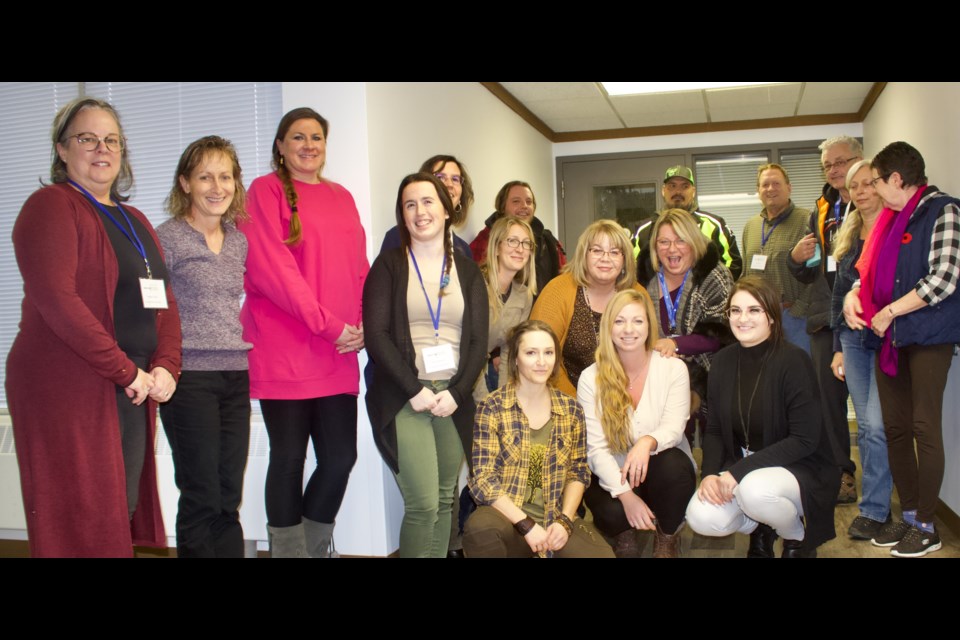LAKELAND - Creating a framework to understand the barriers of accessing and growing locally produced food has brought dozens of rural Albertans together to be a part of a food sustainability project spearheaded by Connect For Food (CFF).
The Alberta-based organization is aiming to bring eight sectors together that all play a role in the food industry. The organization is taking a holistic approach, while also aiming to identify research opportunities and improvements, according to Keleigh Cormier, co-founder of CFF.
“We're connecting the producers, processors, educators, marketers, retailers and food services with the objective of looking at our food system. So, when people are thinking about our food system through different lenses, I think that's where we get this energy and excitement. Not only are we looking at... barriers, but we're trying to look at more opportunities.”
In the fall, the organization hosted five all-day workshops across northeast Alberta to share ideas and gather input from groups and consumers. The communities of Lac La Biche, Smoky Lake and Ardmore were all included in the ‘Grow What We Eat, Eat What We Grow’ workshops.
Cormier, a consultant with experience in the food and agritourism industry, created the organization alongside co-founder Perry Phillips, a farmer and agricultural food relationships specialist.
Identifying challenges
During the Lac La Biche County event held on Nov. 16 at Portage College, Heather Stromquist, the County’s economic development officer, says the importance of implementing workshops around food sustainability is vital to supporting producers who are not only economic drivers in the community but also food suppliers.
“It is a huge economy, and we have a lot of people, a lot of businesses in our community who are making a living at farmer’s markets and direct farm-to-table sales, offering products in our grocery stores. And a lot of them are doing it in isolation and not knowing what other businesses and opportunities are out there.”
Bridging together the challenges and gaps in order to understand how to support the community and entrepreneurs in the industry is a step in the right direction, she explained.
“Growing, producing and selling food products is part of that economy,” said Stromquist.
Local discussion
Some of the hot-button topics attendees discussed last Wednesday included ethical concerns about food quality and preparing for potential shortages. A major topic for local farmers was the national reliance on importing foods as a primary source for many consumers and retailers.
“Where you buy your food counts. When you use your 'voting dollars' to support sustainable, Canadian agriculture, you are casting a ballot to support generations yet to come,” said Jolene Yackimec from Sand Springs Ranch.
The family-run farm in Lac La Biche County has been serving the greater area for over 30 years with certified organic and free-range meats along with fresh produce, said Yackimec.
“We take pride in our diverse farm, where each component compliments another. Our farming practices are a unique blend of organic, biodynamic, and holistic methods.”
Participating in the workshop to discuss changes, diversifying programs and how to educate and develop a healthier sustainable food culture was impactful, she explained.
“It was interesting to hear each person’s relationship with local food and their experiences…When a room full of like-minded people get together really good discussions happen, and we are more likely to reach our local food goals if we work together.”
Provincial support
Working to impact potential policy changes is also part of the focus. Currently, ‘Made in Alberta’ labels attached to products available in retail spaces in the province are one of the directives supporting local communities' products, said Eileen Kotowich, guest speaker and Alberta Agriculture and Irrigation farmer's market specialist.
“That label should help because it's not just a sticker on products, sometimes it’s going to be in-store promotions… to help support our retail environment,” for consumers and producers to make more confident choices together, said Kotowich.
“We need to work collaboratively,” on programs and funding opportunities to support food producers and programs across the province.
Assessing findings
While CFF works toward debriefing and building partnerships with sponsors and political bodies to enact change, the first goal is to get the discussion going, said CFF co-founder Phillips.
“I guess people leave these workshops feeling somewhat empowered, you know where typically I think a lot of people in rural communities have started to feel powerless,” controlled by external factors outside of their reach, he said.
Moving into the future, bringing programs for rural communities, the future looks bright, said Phillips.
“We do have an opportunity here to change our future."



